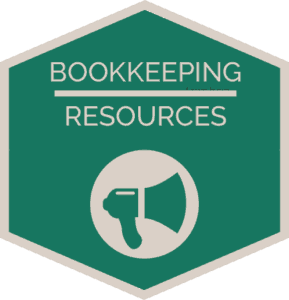Unfortunately, there is a lot of confusion around exactly how to manage small business finances. It’s a topic that exhausts business owners everywhere – What should I do first? How do I set my business up for success? What can I do on a regular basis to improve my finances?

Building good money habits is essential to the longevity of your small business.
Entrepreneurs can feel intimidated by all things money, taxes or compliance, but honestly – it doesn’t need to be that complicated.
First things first, always lead with consistency. I like to teach something I’ve affectionately called ‘The Consistency Principle’.
Implement ‘The Consistency Principle’:
The key behind the consistency principle (and arguably the most important thing when it comes to managing your small business finances) – is consistency.
Implement the following to set a strong financial foundation:
-
-
- Schedule bookkeeping time regularly (and SHOW UP)
- Invoice promptly
- Honor your contracts and promises
- Follow up with clients about payments before they’re due
- Categorize transactions the same way over and over again
- Pay your bills
- Pay YOURSELF
-
Once you’ve committed to consistency with your money, you can move forward and implement necessary systems.
Use an Accounting Software
Speaking of systems: as your business grows, simple spreadsheets won’t cut it for managing your cash flow.
Your small business finances need rock-solid organization. This is why it’s important to choose software that can help you automate your bookkeeping.
It’s important to interview the software AND yourself (what are your needs for your business?) before making a selection.
A good piece of software will help you with some of these tasks, a great piece will help you with most or all of these tasks.
Examples of things I would ask myself include:
-
-
- Do you have recurring revenue (like retainers or subscriptions)?
- Do you have to record multiple expenses?
- How do your clients pay you (credit card, ACH, check, cash)?
- How do you keep track of money owed to you?
- Do you need to accept credit card or ACH payment?
-
My favorite software for its automation features is QuickBooks Online, but it’s important that you ask yourself what your small business finance needs are first, and go from there.
Develop and establish good policies
Clear and concise policies with your clients will help shrink the cash flow cycle… aka get you your money faster.
Don’t make it difficult or confusing for your clients to pay you! Be transparent in your policies and clear from the get-go.
-
-
- Define the scope of work clearly & avoid scope creep (aka clients trying to add additional work to a project without paying you additional money)
- Set out payment expectations – when are payments due?
- Educate your clients on HOW to pay you
- Spell out how disagreements will be worked out
-
Keep these policies on your website so they are available for clients to refer to, and make sure you always sign a contract before services are provided (also, have a lawyer craft your contract for you – this is a worthy investment, trust me!).
Small Business Finances Need Regular Attention
Your money is the lifeblood of your business. Ensure that you’re doing your housekeeping when it comes to managing it. There are clear things you, as a small business owner, should do year-round:
QUARTERLY
-
-
- Touch base with your accountant to make sure you’re paying the proper amount of money for your quarterly taxes
- Pay your taxes (this is a must)
- Tie up loose ends
- Review your financial reports, try to spot any trends or changes
-
YEARLY
-
-
- Every year issue 1099s, W2’s, and other tax forms
- File your tax returns ON TIME
- Make retirement contributions (do this monthly if you can)
- Review your bookkeeping system for any tweaks or improvements
-
MONTHLY
-
-
- Review recurring expense for profit leaks
Example: stop paying for software subscriptions you’re no longer using - Collect W9’s from freelancers (if you’re working with subcontractors you must do this)
- File receipt and bills, both hard copies and digital copies
- Download your bank, credit card, and PayPal statements
- Download copies of checks from your bank (How 1990’s… but seriously, do it.)
- Review recurring expense for profit leaks
-
WEEKLY
-
-
- Generate invoices
- Record payments or follow-up on money owed to you
- Categorize expenses
- Populate your accounting software like Quickbooks Online or an Excel spreadsheet if your bookkeeping system is really simple
- Review financial reports
-
When it comes to managing your small business finances, TLC is key.

I’ve heard it a million times – I know bookkeeping/finances/money is not everyone’s favorite area of business.
However, knowing what’s going on financially with your business is the mark of a sophisticated business owner; make sure whomever you hire to help you with your bookkeeping is someone you feel comfortable with – someone with whom you have an open, clear line of communication.
Looking for a bookkeeper? Book a free consultation with us here.
Want to learn more about how to manage your small business finances? Check out my signature financial basics program Chief Wealth Officer here.
**this post contains affiliate links for products we love.

